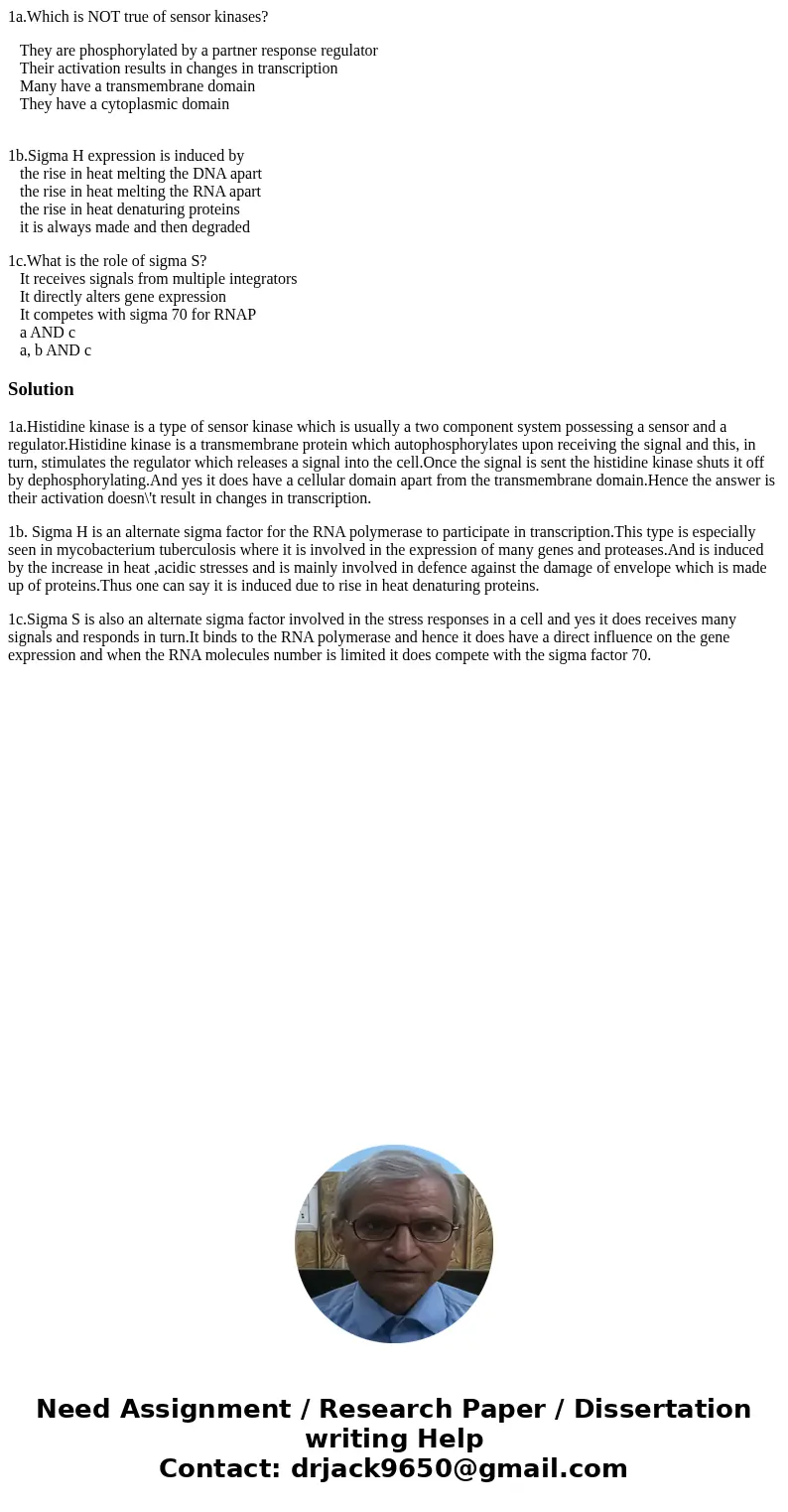1aWhich is NOT true of sensor kinases They are phosphorylate
1a.Which is NOT true of sensor kinases?
They are phosphorylated by a partner response regulator
Their activation results in changes in transcription
Many have a transmembrane domain
They have a cytoplasmic domain
1b.Sigma H expression is induced by
the rise in heat melting the DNA apart
the rise in heat melting the RNA apart
the rise in heat denaturing proteins
it is always made and then degraded
1c.What is the role of sigma S?
It receives signals from multiple integrators
It directly alters gene expression
It competes with sigma 70 for RNAP
a AND c
a, b AND c
Solution
1a.Histidine kinase is a type of sensor kinase which is usually a two component system possessing a sensor and a regulator.Histidine kinase is a transmembrane protein which autophosphorylates upon receiving the signal and this, in turn, stimulates the regulator which releases a signal into the cell.Once the signal is sent the histidine kinase shuts it off by dephosphorylating.And yes it does have a cellular domain apart from the transmembrane domain.Hence the answer is their activation doesn\'t result in changes in transcription.
1b. Sigma H is an alternate sigma factor for the RNA polymerase to participate in transcription.This type is especially seen in mycobacterium tuberculosis where it is involved in the expression of many genes and proteases.And is induced by the increase in heat ,acidic stresses and is mainly involved in defence against the damage of envelope which is made up of proteins.Thus one can say it is induced due to rise in heat denaturing proteins.
1c.Sigma S is also an alternate sigma factor involved in the stress responses in a cell and yes it does receives many signals and responds in turn.It binds to the RNA polymerase and hence it does have a direct influence on the gene expression and when the RNA molecules number is limited it does compete with the sigma factor 70.

 Homework Sourse
Homework Sourse